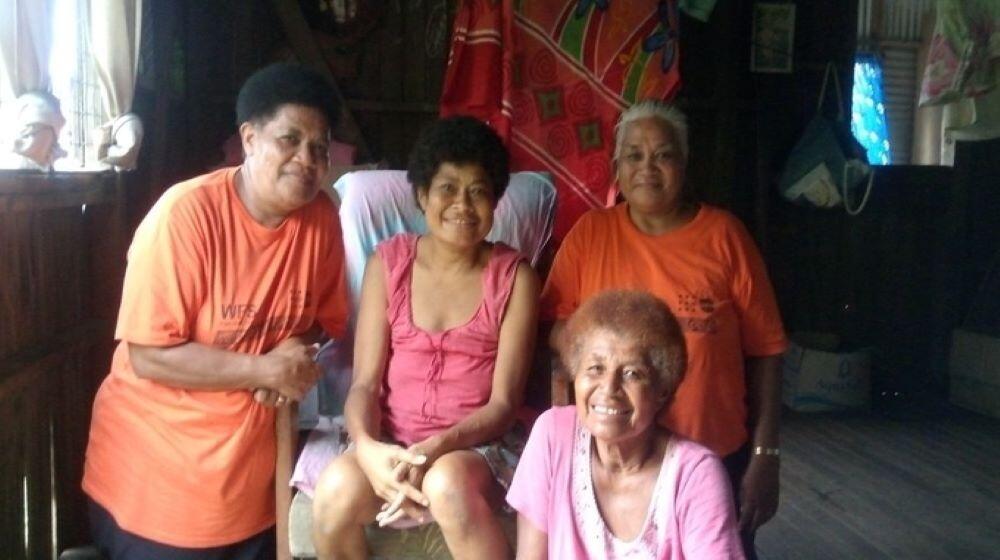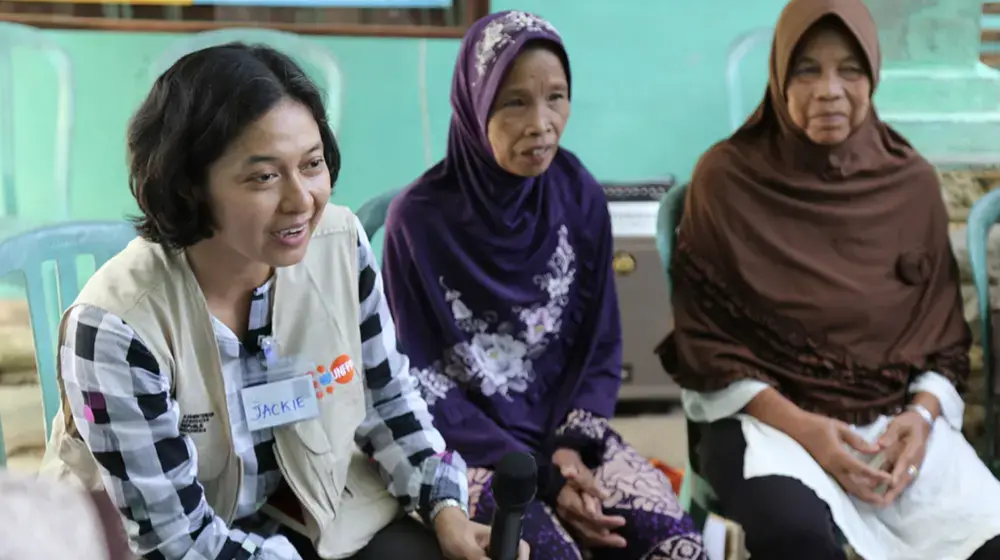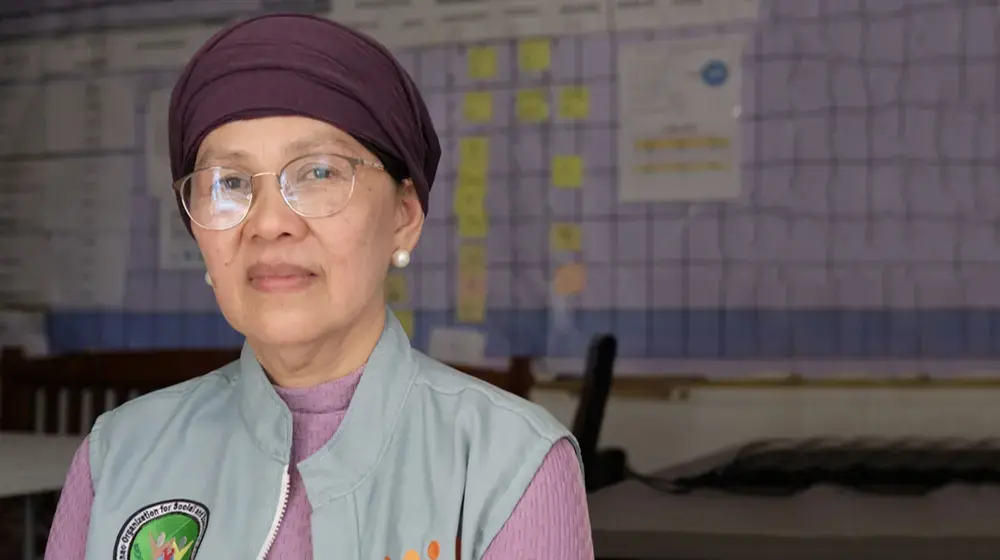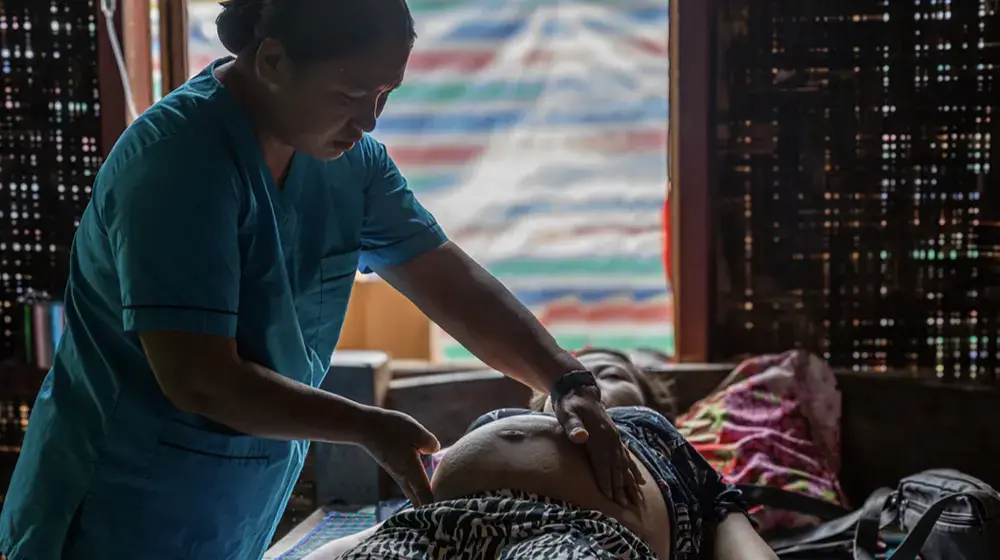When disaster strikes, the United Nations Population Fund (UNFPA) ensures that the reproductive health, needs and protection concerns of women and girls living with disabilities are integrated into emergency responses. One of the ways UNFPA supports women and girls living with disabilities in the aftermath of natural disasters is by providing Women with Disabilities Dignity Kit (WWDDK).
In light of this, UNFPA Pacific launched the WWDDK in 2020, through the Asia Pacific Regional Prepositioning Initiative, supported by the Australian Government, UNFPA in partnership with the Pacific Disability Forum and the International Planned Parenthood Federation (IPPF), have created a unique partnership to pursue an inclusive humanitarian response to the needs of women and girls with disabilities and women and girls more broadly.
On 17 December 2020, severe Tropical Cyclone (TC) Yasa (Category 5 intensity) made landfall on Bua district of Vanua Levu (part of the Northern division) – Fiji’s second-largest island.
In the wake of natural disasters, women and girls are exposed to a range of risks to their health and well-being which demand urgent and critical action. UNFPA supports governments and national partners to ensure that the reproductive health needs and protection concerns of women and girls are met during disasters. One such way is by providing dignity kits.
Dignity Kits provide women and girls with a range of essential hygiene and sanitation items including clothing, sanitary pads, soap and underwear to ensure that they maintain their dignity in crisis, are able to access humanitarian assistance and are less vulnerable to Gender-Based Violence (GBV). The kits also contain protection items such as flashlights and whistles that can make women feel more secure when staying in a temporary shelter.
In partnership with the Fijian Government, stakeholders, and civil society organizations, the UNFPA Pacific humanitarian team was deployed to the most affected areas by TC Yasa. The UNFPA Pacific response, first and foremost, focused on ensuring and maintaining the dignity of women and girls. UNFPA also works through these distributions to ensure women and girls and young people have access to information of where to access ongoing needs for sexual and reproductive health services and responses for gender-based violence.
UNFPA Pacific also deployed retired, but currently licensed and registered Fijian midwives to reach the affected population of women and girls with integrated Sexual Reproductive Health and Rights (SRHR) and GBV services. Throughout the UNFPA Pacific’s TC Yasa response in Vanua Levu, 28 women with disabilities were reached with WWDD kits. Additionally, 470 WWDD kits are prepositioned with the National Council for Persons with Disability office in Labasa for future disasters that may happen.
Mereia Wainisau Kotoitubuna, a 47-year-old from Buca village in Tukavaisi, who was affected by the disaster, was visited by the midwives through UNFPA Pacific’s community outreach initiative. Mereia, suffers from a stroke and is fully dependent on her 72-year-old mother who looks after her personal hygiene and daily needs. Mereia is a single mother of four children with no stable source of income. She mainly survives on the support provided by her fellow villagers. In November 2021, as the UNFPA humanitarian response efforts to TC Yasa continued, Mereia was visited twice by the two UNFPA Pacific retired midwives with the WWDD kit. She deeply appreciated the much needed support provided to her by UNFPA Pacific.
UNFPA pledges to keep innovating, advocating, and pushing to ensure that persons with disabilities everywhere are fully aware of and able to exercise their rights; to access sexual and reproductive health information, education and services; and to live free of violence and discrimination.





